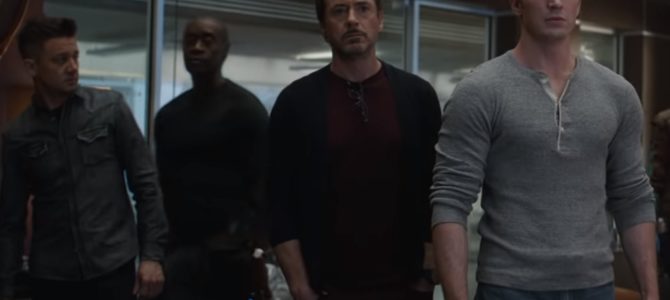
“Avengers: Endgame” has passed “Avatar” to become the worldwide highest-grossing movie of all time, at $2.79 billion, after being rereleased for that purpose. This record crowns the most impressive effort by a producer in Hollywood history, Kevin Feige. Without prestige or acclaim, he has conquered the American imagination, starting in 2008 with “Iron Man.”
With the end of Phase Three of the Marvel Cinematic Universe, he finally gave audiences the drama to satisfy their craving for disaster and redemption. Feige was 34 then, and now 45.
The Creators Will Be Remembered
We should praise Feige’s unique ability to make hit after hit, franchise after franchise, until he convinced the rest of Hollywood to surrender. The computer-based action-comedy in which he specializes is now simply expected everywhere, fully replacing the previous, once very successful gritty superhero movie a la “The Dark Knight.”
Millennials will think about movies, TV, and computer games in the terms of the MCU, and America’s imagination is now Feige’s to lose. When people pay almost $3 billion, they throw their hearts in, too.
The directors deserve unusual praise, as well. Joe and Anthony Russo are the most talented MCU directors, and the only ones who create intense drama, adding tragic elements to Marvel storytelling. They made “Captain America: The Winter Soldier” and “Captain America: Civil War” before taking over the Avengers from Joss Whedon, who made a mess of the biggest franchise in America with “Avengers: Age of Ultron.” Now they have made something for which they will be remembered, and their achievement will affect the next generation of movies, starting with Phase Four of the MCU.
What ‘Infinity War’ and ‘Endgame’ Missed
“Avengers: Endgame” and “Avengers: Infinity War” worked together so well, unlike any previous Marvel movies, that they should have been put together as one extravaganza to tie up all the Marvel threads. That would have been the most remarkable movie of the decade.
Of course, that’s impossible — for business reasons as well as audience expectations, but the two did fix each other’s problems. The plot and action of “Infinity War” were often annoying, whereas the tragedy of Thanos really offered something great. The terrible conclusion of his story made almost everything else in the movie feel like a distraction.
Audiences have preferred “Endgame,” which had a much better plot, built around both the set and surprises that led to the inevitable final battle without giving away anything about the great showstopper. This time around, the Avengers actually got interesting character development by going back to the past, to famous scenes from the MCU, an innovative writing technique. The heroes’ journeys into their own pasts enforced the continuity of the story before the conclusion, establishing that the Avengers chose and made their own futures.
The problem with “Endgame” is a lack of anchor for the story, a character or thematic development. Instead, you get, as we say about movies, a MacGuffin: something everybody wants, chases after, misplaces, or mistakes, triggering the surprising resolution. This is the Infinity Gauntlet, and it makes the action feel like a relay race, with characters passing the baton to each other. Cinema borrows this puzzle technique from computer games, and it was, in a way, inevitable, even if it lacks dramatic weight, because the audience really does love computer games.
What ‘Endgame’ Did Right
But all things considered, “Endgame” was the Russo brothers at their best, developing relationships between characters that make sense in human terms: Friendship, fatherhood, female solidarity — all these things emerge not in dialogue or interior scenes, but in the fight choreography. The characters in any given montage are emotionally compelled to face each other or help each other.
CGI fighting is rarely worthwhile, since it’s so many fireworks and you know in advance the good guys will win. There’s no martial arts excellence to impress us, either. The Russo brothers solved this problem by using action scenes for characterization, bringing together constellations of characters, within and in between franchises, so the audience gets a feeling for their friendships.
With so many moving parts — even more heroes than in “Infinity War” — these constellations were the only realistic way to let audiences know what’s going on in the confusion. You know they’re going to win, but you don’t know how, so the stakes are high in any given fight.
Moreover, this fight choreography and the feelings it stirs compensate for the computer-generated imaging. This will be the pattern for the MCU, reviving in a computer game environment the comic books children loved in previous generations. Just like the heroes are meant to offer audiences identities to latch on to, so also the groups are supposed to model friendship.
Instead of plots, we’ll have an emotional progression for these characters. In “Infinity War,” emotion came from a series of failures to stop Thanos, as one group of heroes after another was overwhelmed, leading to a heroic last stand that nevertheless felt doomed to fail. Thanos seemed unstoppable, except for one trick that gave the Avengers another chance.
“Endgame” reversed this progression and gave us emotional victories in a buildup to a final confrontation, an ascent to counteract the descent in the previous installment. At the same time, lessons having been learned, our heroes finally were ready to act together.
Finally, a Marvel movie had a sense of completeness about it, after 11 years of building one story on top of another, introducing franchise after franchise and weaving them together in rather unsatisfactory ways, the audience got to the conclusion. The Avengers conquered Thanos. Moreover, we saw Iron Man’s death, the Cap’s retirement in a midcentury love story, and so we got to say goodbye to the most popular heroes. Unlike the bromide, “Endgame” showed it’s not the journey but the conclusion that counts.









